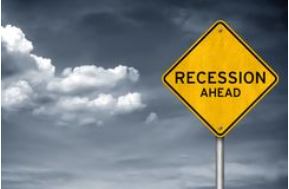By Kevin Judge | May 20, 2019
 For several generations, economics textbooks and economists have told us that an economy follows a predictable cycle. A recession occurs when an economy becomes exhausted. At some point the downturn hits the low and a recovery begins. When the recovery has recouped the economic losses, a new expansion commences that again continues until exhaustion and the cycle repeats itself.
For several generations, economics textbooks and economists have told us that an economy follows a predictable cycle. A recession occurs when an economy becomes exhausted. At some point the downturn hits the low and a recovery begins. When the recovery has recouped the economic losses, a new expansion commences that again continues until exhaustion and the cycle repeats itself.
This led policymakers to devise strategies they called counter-cyclical. For example, lowering interest rates as an economy weakens or deficit spending to stimulate the economy.
Beginning in the 1970s questions about these policies emerged. How could the economy remain sluggish despite massive deficit spending? The later success of the Reagan economic policies an economic expansion, only briefly interrupted over the next 20 years or so, led many of us to question whether there truly is such a cycle.
Do expansions have to get exhausted? Could they simply continue indefinitely on their own without the intervention of policy makers?
If you think of the US economy as a collection of diverse industries like a diverse portfolio of stocks, the risk of a general nationwide recession should be small. In fact, the economic downturn under the first President Bush, which Bill Clinton called the worst economy in 50 years, wasn’t really felt by most Americans. Unfortunately for George HW, it was primarily felt in the Northeast and west coast where the media elites live and contributed to his reelection loss more than it probably should have.
The 1991-92 recession was not caused by an exhausted expansion. The trigger was the removal of tax breaks in the 1986 tax reform that benefitted real estate at a time mortgage industry was in crisis and the northeast region in particular was struggling with a shift from a manufacturing dominated economy to the preeminence of service industries. While there was a compounding effect of several factors, the recessionary trigger was man made. The 1986 tax reform had numerous positive long-term effects, but the timing for the real estate reform was unfortunate.
There are serious concerns now that the economy could go into recession because of numerous so called “head winds”. Some of these, such as weak economies in your Europe and China may be out of the control of our leaders in the US. Slower growth is one thing, but I believe it takes human mistakes to trigger a contraction.
The jury is still out, but Trump’s trade war with China could be such a mistake. The Donald has famously said that “trade wars are easy to win”. So far, it does NOT really look that way! His tariffs are clearly hurting parts of the economy, particularly farmers.
In fairness, Trump is basically doing what recent Presidents have promised in reforming trade polices with China and NAFTA but never did. Events are illustrating why they backed off. This is difficult and risky work.
As the adage goes, however, “the greater the risk the greater the reward”. If Trump is able to work his way to reasonable resolutions in these economic conflicts, we could not only avoid a recession but set the groundwork for continued prosperity for many years.
In fact, getting our relationship with China right may be the most important sing factor in determining the destiny of America in the 20th century. Even if you don’t like Donald Trump, you should be rooting for him on trade.
